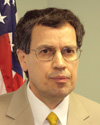By David Shapiro, Dr. Keith Wallace, and Dr. David Leffler
The United Nations has voted to send more peacekeepers into South Sudan. It's a desperate attempt to resolve that young country's ongoing turmoil and violence involving government forces and rebel groups, with innocent civilians caught in the middle. The South Sudanese government may not cooperate, and accuses the U.N. of trying to take over the country.
Rather than peacekeepers (there is no peace, so the term is questionable to begin with), how about peacemakers who address the plague of stress underlying the lack of peace and harmony?
A rapid, highly cost-effective approach is available for the United Nations and South Sudan to end the internal conflict so that the traditional, but unwanted, military intervention by the U.N. would not be necessary.
Post-traumatic stress disorder (PTSD), a major cause of anger and violence, ravages South Sudan and many African nations beset with bloodshed and instability.
Introduction of next generation, evidence-based PTSD reduction technologies, including Transcendental Meditation (TM), has the potential to quickly introduce inner peace, leading to societal peace. Peer-reviewed research shows that TM reduces the anger and violence that fuels social turbulence that is so widespread.
Two studies published in the Journal of Traumatic Stress (April, 2013; February, 2014) confirm that within 30 days of introducing a TM-based PTSD reduction strategy, over 90% of Congolese war refugees with PTSD became non-symptomatic. Similar results were found in South African students diagnosed with PTSD.
In addition there are 100's of studies documenting the beneficial effects of TM on physical and mental health, including reduction of crime and violence with advanced TM practice in groups.
These examples indicate that rapid reduction in PTSD means that along with growth of inner peacefulness, anger and violence subside quickly. Suicides decrease. Significant reductions are experienced in traumatic flashbacks, hyper vigilance, and negative emotions. In addition, there is less negative behavior, such as excessive drinking and non-prescription drug use.
For $100-200 per victim per year (with regular and thorough follow-up), a South Sudanese plagued by PTSD can get permanent relief from this otherwise chronic and debilitating condition. South Sudan's population is about 13 million people. The number of people with PTSD is estimated to be around 20%, so the cost of helping the most affected citizens would be about $250-$500 million for the first year, less than half the 1.1 billion dollar current annual expenditures for UN troops in South Sudan.
New scientific approaches are needed to reduce war and violence, especially in hot spots. It is painfully obvious that the current arms-based emphasis does not work.
Innovative science-based tools are available that can produce inner peace as a means of reducing the anger and violence ravaging South Sudan, Africa and other highly stressed regions worldwide. Inner peace is contagious. It spreads and has the potential to create societal peace. That kind of peacemaking is what's needed and now.
About the Authors:David Shapiro is Founding President of African PTSD Relief (CFC #94568), Dr. Keith Wallace, Founding President and Professor of Physiology at Maharishi University of Management, Dr. David Leffler is the Executive Director at the Center for Advanced Military Science. All are experts in the application of Transcendental Meditation to create coherence and peace in society.






